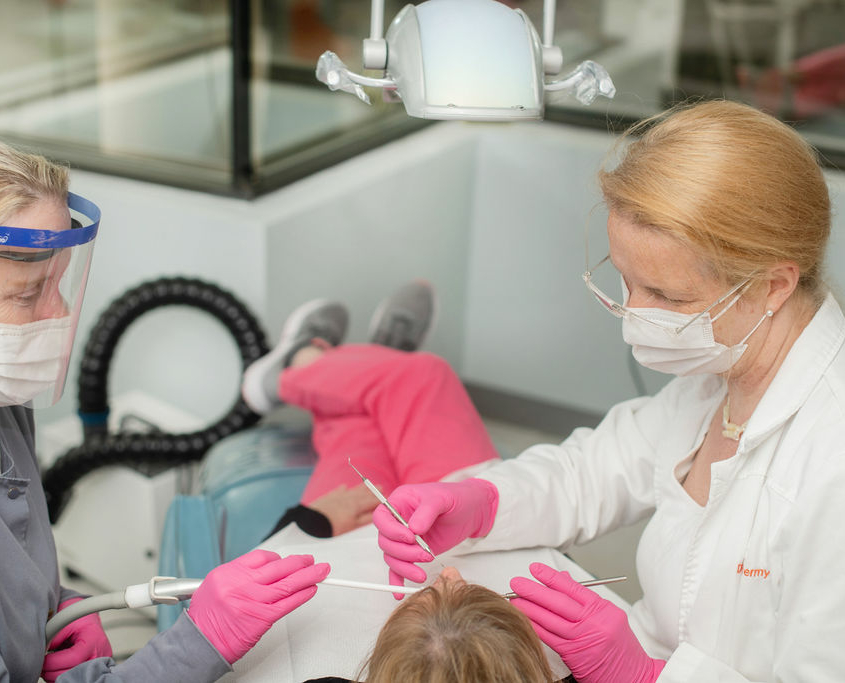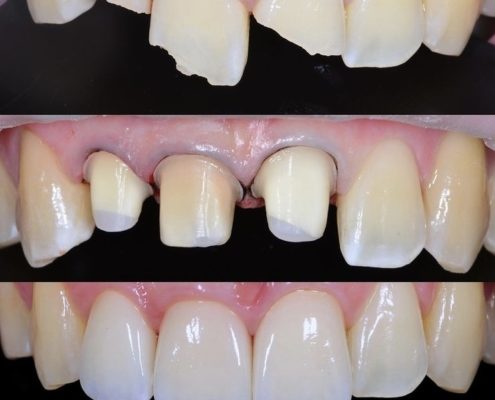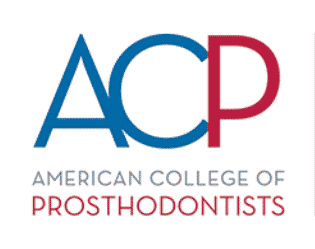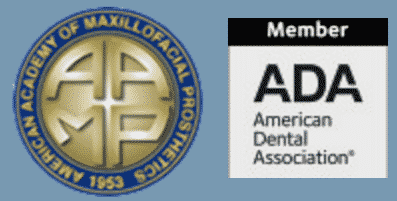Need a Richmond Prosthodontist in Virginia?
Looking for a Richmond prosthodontist in Virginia? Want to know more about the difference between a prosthodontist and a dentist? Following dental school, prosthodontists complete an additional 3-4 years of specialized training in advanced treatment planning, restorative/esthetic procedures, implantology, and full mouth reconstruction.
Prosthodontics is one of the nine dental specialties recognized by the American Dental Association (ADA). It is the only specialty providing an ADA-accredited degree covering the sequencing and execution of complex restorative (prosthetic) and esthetic (often called cosmetic) dental procedures.
Why would a general dentist pursue a graduate program in prosthodontics?
Most general dentistry programs offer limited hands-on training in prosthetic procedures. Clinical programs offered during the last two years of the dental school typically include several tooth fillings, one complete denture, a couple of single crowns, and in some cases an implant restoration (placing a crown on an already existing implant). Thus, most general dentists develop prosthetic techniques on the job or gain exposure during weekend continuing education courses.
Learn more about dental interdisciplinary treatment processes
Those who complete a rigorous program in prosthodontics develop high-level, peer-reviewed, clinical and treatment planning skills. This includes oversight of interdisciplinary treatment processes, often including the collaboration of other dental specialists including periodontists, endodontists, orthodontists, and oral surgeons.
The prosthodontist is regarded as the architect of the restorative treatment plan providing the highest level of esthetic and functional reconstructive dentistry. Many of the cases the prosthodontist encounters concern the repair or replacement of failed prior treatments.
How many dentists are prosthodontists?
- There are about 148,000 general dentists in the United States.
- There are only about 2,900 prosthodontists.
- This is a ratio of about 50 to 1.
Why do we refer to other oral specialists?
We specialize in prosthetic restorative outcomes that emphasize esthetics and function. Our goal is not to be a ”one-stop shop”. However, we are experts in treatment planning which often involves close coordination with other dental specialists. The greater field of dentistry is much too complex to achieve high-quality results from a solo practitioner. Thus we work with a network of other team members that have specialized in certain procedures.
Why we do not offer services in multiple fields of dentistry?
We feel, that those who attempt to offer services in multiple fields of dentistry that are not specialized in those fields are not offering their patients the highest available quality of dental care.
For example:
- Periodontist – e.g. severe gum disease, soft and hard tissue grafting procedures, some implants with proper credentials
- Endodontist – root canals
- Oral-Maxillofacial surgeon – e.g. difficult extractions, bone grafting, difficult implants, removal of cancerous growths, jaw repositioning, repair of soft and hard tissue after e.g accidents
- Pedodontist – specialized in the treatment of children, often under sedation
- Orthodontist – moderate to significant tooth alignment
- Prosthodontists – e.g. comprehensive treatment planning, complex restorative and esthetic treatments, implants with proper credentials
Do Richmond prosthodontists charge more than general dentists?
- On average probably- yes. There are a couple of reasons for this.
- The time required to interact with the patient, provide treatment options, and set up a treatment plan. Also, the attention to detail provided for each procedure.
- The high quality of the dental laboratories and materials used.
A word about dental insurance
Note that very few prosthodontists are registered as in-network insurance providers. Insurance fee schedules determine reimbursement levels and can directly influence “chair time”, the choice of materials, and the quality of dental laboratories used. Many prosthodontists want to provide the time and materials necessary to meet their own high-quality expectations and thus refrain from becoming in-network providers.
A cheaper alternative is not necessarily a better deal. The true price-to-value relationship of prosthetic work ultimately depends on customer satisfaction in terms of aesthetic appeal and long-term function.
What type of patient visits a prosthodontist?
Essentially there are three or four types of patients that recognize the value of treatment by a prosthodontist.
These include a patient who:
- Have informed themselves about working with a prosthodontist to achieve high-quality esthetic/restorative outcomes (as you are doing now!).
- Has had significant issues with prior esthetic/restorative work and seeks repair or replacement.
- Understands that their insurance plan (PPO) offers limited or no coverage beyond the annual limit, and is willing to look outside their insurance network.
- Values the advice and treatment of a specialist who works with other specialists.







